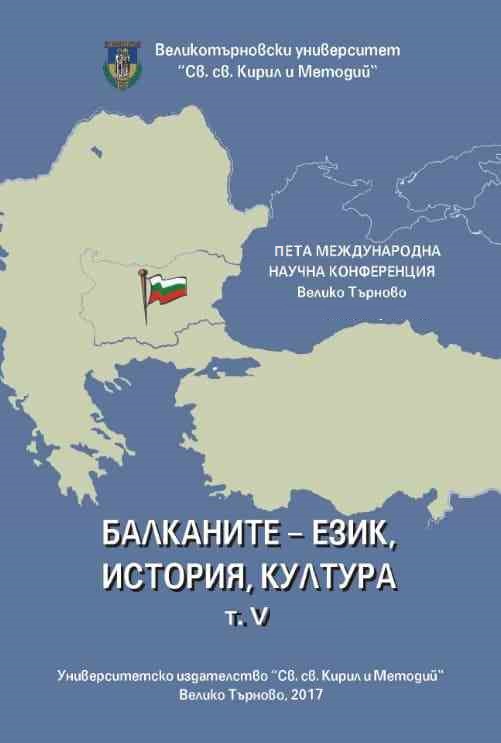Метафорични народни географски термини, които произлизат от названието на лицето в българския и румънския език
Metaphorical Folk Geographical Terms Derived from the Body Part Term ‘Face’ in the Bulgarian and Romanian Languages
Author(s): Boryana MihaylovaSubject(s): Anthropology, Social Sciences, Language studies, Language and Literature Studies, Customs / Folklore, Geography, Regional studies, Physical Geopgraphy, Theoretical Linguistics, Comparative Linguistics, South Slavic Languages
Published by: Великотърновски университет „Св. св. Кирил и Методий”
Keywords: folk geographical terminology; metaphor; metaphtonymy; body part term; face
Summary/Abstract: The folk geographical terms derived from the body part term ‘face’ in the Bulgarian and Romanian languages are examined in this paper: Bulgarian лице ‘face’, ‘southern or south-eastern slope’, ‘place with southern exposure’; Romanian faþã ‘face’, ‘southern slope’, ‘forest on a southern slope’, ‘place exposed to the sun (the moon, the wind, the fire)’, ‘prominent part of an eminence’. In both languages, those metaphorical terms have similar meanings and distribution and express the same conceptual metaphors – THE MOUNTAIN IS A PERSON, THE EMINENCE IS A PERSON, THE EARTH IS A PERSON. Two of the meanings of the Romanian word faþã ‘face’ are considered to be metaphtonymies – ‘forest on a southern slope’ and ‘prominent part of an eminence’.
Journal: Балканите – език, история, култура
- Issue Year: 5/2017
- Issue No: 1
- Page Range: 146-153
- Page Count: 8
- Language: English, Bulgarian, Romanian

